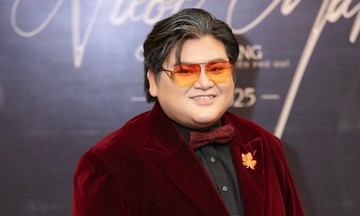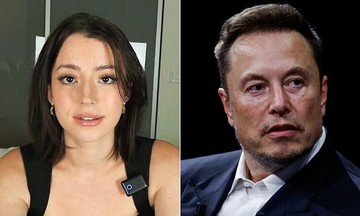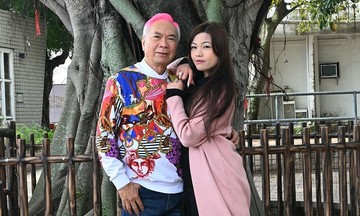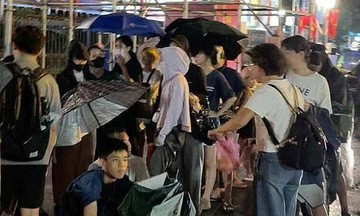A week after the Kiss Cam video went viral, the scandal involving two Astronomer executives - CEO Andy Byron and HR director Kristin Cabot - continues to dominate headlines worldwide. International media and social media are awash with details about their personal lives, from their marital statuses and colleagues' reactions to Byron's resignation. Alongside news coverage, platforms are flooded with videos and memes parodying the couple's actions at the concert.
On 19/7, Coldplay frontman Chris Martin addressed the incident during a subsequent performance. He drew laughter from the crowd by "warning" attendees about the possibility of appearing on the big screen. Other artists, including Luke Bryan, Morgan Wallen, rapper Big Sean, have jokingly cautioned audiences against getting caught in similar situations at their concerts. American singer Jason Aldean used a photo of Byron and Cabot to promote his own show on Instagram Story, with the caption: "Bring your girl to an Aldean show before her CEO does." Popular talk show hosts Jimmy Fallon and Stephen Colbert also referenced the incident on their programs.
Kiss Cam is a common feature of American culture, frequently seen at sporting events, concerts, and award shows. According to NPR, its exact origins are unclear, but it likely started in California stadiums in the 1980s. Most venues display signage informing attendees that they may be filmed.
Many celebrities have appeared on Kiss Cam, including couples like Robert Downey Jr. and his wife, Adam Sandler and his wife, Heidi Klum, Lady Gaga, Adam Levine, Justin Timberlake, and David Beckham with his daughter Harper. Even high-profile figures like former US presidents Jimmy Carter and Barack Obama with their wives have been featured.
While most "chosen" audience members embrace the fun, some couples decline, even famous ones. At the 2016 BAFTA awards, actors Michael Fassbender and Alicia Vikander, who were dating at the time, refused to kiss on camera. According to the Daily Mail, the BBC subsequently cut the footage from the broadcast.
Coldplay isn't the only artist to experience awkward Kiss Cam moments. During a November 2024 Sydney concert, Olivia Rodrigo, the singer of "good 4 u," prompted a couple to kiss, unaware they were siblings. Embarrassed by the discovery, she jokingly urged fans to forget the incident. The video of the event garnered over 4 million views on TikTok, with Rodrigo apologizing in the comments.
Beyond the humorous reactions, the "Coldplay affair" has sparked a broader discussion about privacy in the digital age. According to AP, the Astronomer executives' scandal underscores a significant consequence of our technologically driven world: we are constantly being observed and subject to "social media surveillance," regardless of location.
Media experts note the increasing prevalence of private moments or localized incidents becoming global internet sensations. Sociologist Ellis Cashmore, author of "Celebrity Culture," told AP that the Coldplay Kiss Cam incident answers a long-standing question: "Does private life still exist?" His answer: "There is no longer such a thing as private life."
Mary Angela Bock, associate professor of Journalism and Media at the University of Texas, shares a similar view: "I'm not sure we can ensure privacy at a concert with hundreds of other people. We can't even protect it while walking down the street."
While Kiss Cam has existed for decades, experts emphasize that the speed of dissemination is what distinguishes the current era. A single phone recording uploaded online can instantly make a private moment public knowledge. According to Bock, it's the "uncontrollable and novel" nature of content distribution systems like social media, not the cameras themselves, that has changed the landscape.
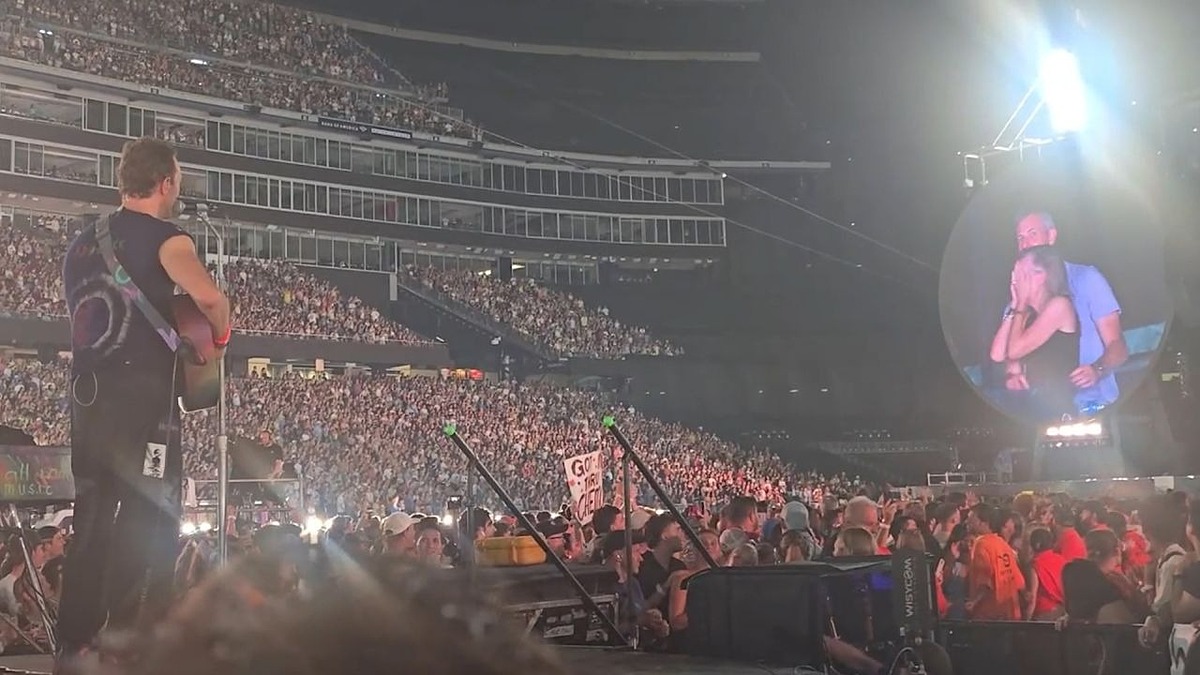 |
Coldplay frontman Chris Martin joked, "Either they're having an affair, or they're just shy," while watching the Kiss Cam. _Photo: Storyful_ |
After a post goes viral, there's a tendency for online users to dox individuals featured in the video or image, exposing their identities and subjecting them to online harassment. The Astronomer CEO and HR director experienced this firsthand.
Finding information about people in videos is easier in the age of advanced technology and AI. Bock commented: "It's concerning that we can be identified bio-metrically, our images are widespread online, and we can be tracked by social media. The internet has transformed from a space for interaction into a massive surveillance system. People are being monitored by these platforms, tracked for the entertainment of others."
Even individuals not featured in the video can be affected. Due to the prevalence of fragmented or inaccurate information online, innocent bystanders can be mistakenly linked to the scandal. This happened in the Astronomer CEO incident, where a woman standing near the couple was misidentified as an employee named Alyssa Stoddard, leading to online attacks against her. A company representative confirmed Stoddard wasn't involved, nor were any other employees present at the concert.
AP notes that viral content is difficult to erase, and there are limited legal avenues to prevent people from sharing videos filmed in public spaces. From an individual perspective, Bock suggests that "thinking before sharing" and questioning the accuracy of information can be helpful.
"Social media has changed dramatically. But we, as a society, haven't caught up with the technology, both ethically and in terms of common courtesy," added Bock.
Phuong Thao (_adapted from AP_)





